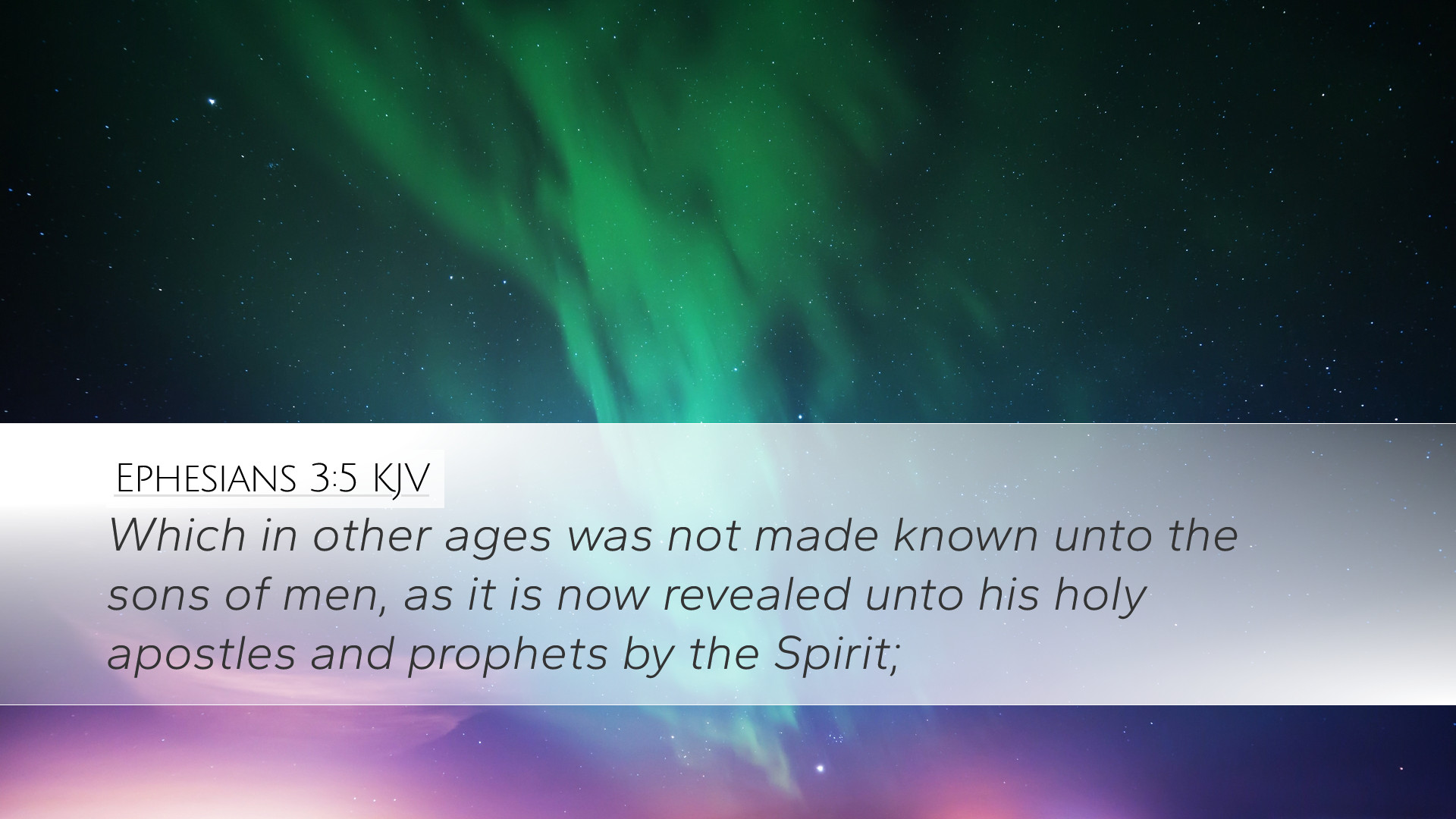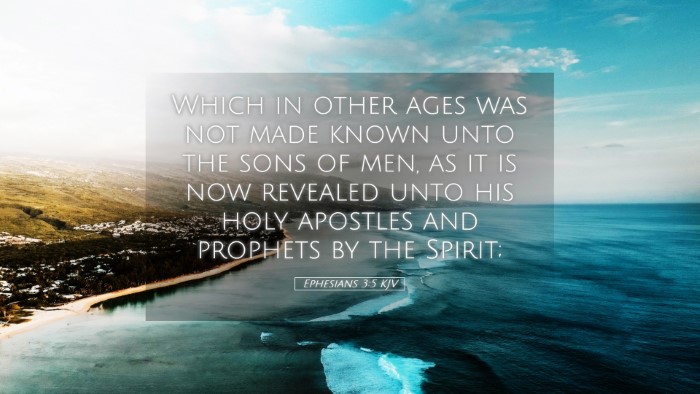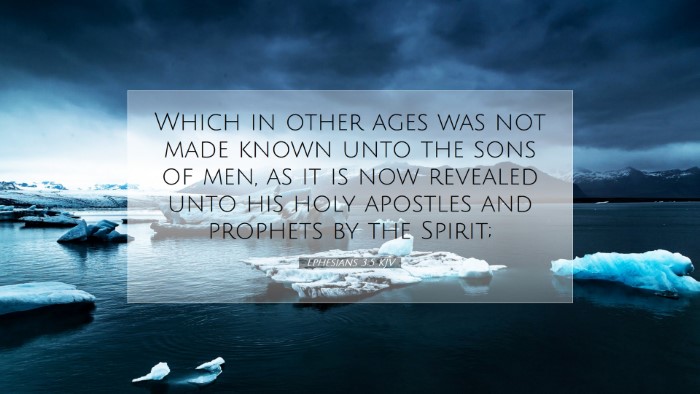Ephesians 3:5 - Commentary
Verse Text: "Which in other ages was not made known unto the sons of men, as it is now revealed unto his holy apostles and prophets by the Spirit."
Introductory Context
This verse is a pivotal part of the Apostle Paul's letter to the Ephesians, specifically within a section where he unfolds the mystery of the gospel. Understanding this passage requires a grasp of the historical and theological context in which Paul wrote.
Historical Background
Mankind's ignorance regarding God's plan of salvation over the ages is a theme present in various biblical texts. As Paul contrasts the past with the present revelation, he emphasizes the unfolding nature of God's plan. The era of the Old Testament saw glimpses of the gospel, but full comprehension was reserved for the New Testament revelation through Christ and his apostles.
Comparison of Revelation
- Old Testament Shadows: The prophets of the Old Testament spoke of the coming Messiah, yet the full scope of the salvation that would be experienced was not clearly articulated. This is often termed “mystery.”
- New Testament Fulfillment: In the New Testament, through Jesus and the apostles, this “mystery” is unveiled. Paul asserts that the revelation of the gospel includes the Gentiles, a concept that was largely unacknowledged in prior ages.
The Role of the Holy Spirit
Paul credits the Holy Spirit with revealing this truth to His holy apostles and prophets. This divine revelation underscores the necessity of the Spirit's guidance in understanding God's will and purpose.
Commentary Insights
- Matthew Henry: Henry emphasizes the "mystery" aspect, noting that what was once hidden is now fully disclosed to believers. He highlights the significance of acknowledging that this revelation is a divine act and not a human discovery.
- Albert Barnes: Barnes reflects on the critical importance of the apostolic testimony. He asserts that the apostles, as appointed by Christ, hold a unique authority in conveying the truths of God. Their revelations pave the way for understanding the inclusivity of the gospel.
- Adam Clarke: Clarke discusses the progressive nature of divine revelation in history. He accentuates how God progressively unfolded His plan—a point seen from the creation narrative through the prophets, leading to the final revelation through Christ.
Theological Implications
The unfolding nature of revelation has profound implications for Christian theology:
- Understanding the Mystery: The term 'mystery' often indicates truths that were previously hidden. This encourages a deeper exploration of scripture and recognition that God’s plan is expansive.
- Inclusion of Gentiles: One of the most revolutionary elements of this passage is the inclusion of Gentiles in God's salvific plan. The early church's struggle with this concept reflects on the challenges faced today in outreach and inclusion.
- Mediator Role of the Apostles: The authority of the apostles in the foundation of the church reminds believers of the continuity between the early church and contemporary faith. Their writings serve as guidance for all Christians.
Application for Believers
For modern believers, this passage offers several practical insights:
- Embrace the Unfolding Revelation: Acknowledge that God’s teachings can be complex and may evolve in understanding as we grow in faith.
- Seek the Spirit’s Guidance: Engage earnestly in prayer and study of the Word, seeking the Holy Spirit’s enlightenment to comprehend and live out the mysteries of the gospel.
- Promote Inclusivity: Follow the example of the early church by fostering communities that embrace diversity and recognize the universal call to the gospel.
Conclusion
The revelation of the mystery of Christ encapsulated in Ephesians 3:5 illustrates an essential theological truth—that God's plan was both progressive and inclusive. By understanding the evolution of this mystery, believers are encouraged to explore their faith deeply and be united in the body of Christ.


